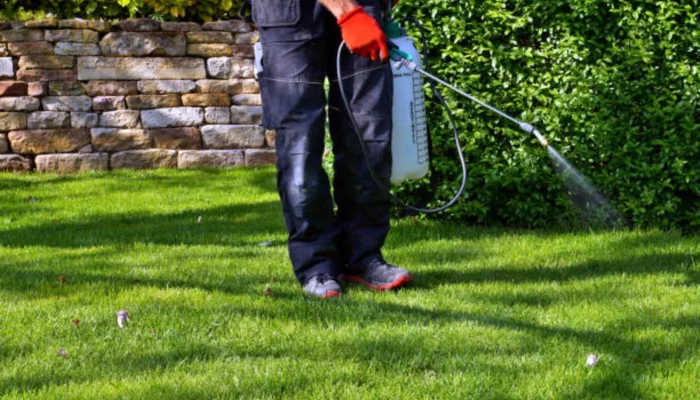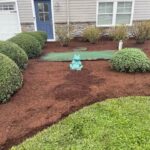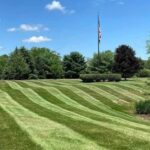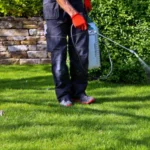Insect Control Services: Protecting Your Home and Landscape from Pests
Insects are a natural part of any environment, but when they invade your home or garden, they can cause significant damage and discomfort. Whether it’s ants in your kitchen, termites threatening your home’s foundation, or mosquitoes ruining your outdoor gatherings, insect control services are essential to protect your property and maintain a healthy, pest-free environment. Professional insect control not only helps keep pests at bay but also ensures that your home, garden, and family are safe from the harmful effects of infestations.
In this blog, we’ll explore the importance of insect control services, the features of professional pest management, and how these services can help you maintain a pest-free home and yard.
Key Features of Insect Control Services
Comprehensive Pest Assessment
The first step in any insect control service is a comprehensive pest assessment. A professional pest control technician will inspect your property to identify existing pest problems, potential sources of infestations, and the specific insect species that may be causing trouble. This thorough evaluation helps determine the most effective treatment plan for your needs.
Key benefits of pest assessments include:
- Targeted Solutions: Identifying the root cause of the infestation allows for a more focused approach to pest control.
- Early Detection: Early identification of pest issues prevents them from escalating into more significant problems.
- Tailored Treatment Plans: Every property is different, and a professional will create a pest control plan specific to your needs and goals.
Preventative Treatments
One of the most effective ways to deal with pests is to prevent them from entering your home or yard in the first place. Preventative insect control treatments focus on eliminating conditions that attract pests, blocking potential entry points, and applying barrier treatments that stop insects before they become a problem.
Preventative services may include:
- Exterior Treatments: Spraying around the perimeter of your home or garden to create a barrier that repels insects.
- Entry Point Sealing: Identifying and sealing cracks, gaps, and openings where pests may enter your home.
- Lawn and Garden Treatments: Applying natural or chemical insecticides to prevent garden pests from damaging plants and flowers.
Termite Control and Prevention
Termites can be one of the most destructive pests, capable of causing significant damage to the structure of your home. Termite control services focus on detecting, eliminating, and preventing termite infestations before they lead to costly repairs. Regular inspections and treatments help protect your home from these silent destroyers.
Termite control services may include:
- Termite Inspections: Detecting signs of termite activity, such as hollowed wood or mud tubes along foundation walls.
- Bait Systems: Installing termite bait systems around your property that attract and kill termites.
- Soil Treatments: Applying liquid insecticides to the soil around your home’s foundation to create a barrier that prevents termites from entering.
Mosquito Control
Mosquitoes are not only irritating but can also carry diseases like West Nile virus, Zika, and Lyme disease. Professional mosquito control services target the source of mosquito breeding, reducing their population and minimizing the risk of mosquito-borne illnesses.
Key aspects of mosquito control include:
- Eliminating Breeding Sites: Removing standing water, which is where mosquitoes lay their eggs.
- Fogging and Spraying: Using insecticides to eliminate adult mosquitoes and prevent future infestations.
- Larvicidal Treatments: Applying treatments to water sources where mosquito larvae develop to prevent new mosquitoes from hatching.
Ant Control
Ants can invade your home in search of food, water, or shelter. While most ants are harmless, some species—like carpenter ants and fire ants—can cause significant damage to your property or pose a risk to your health. Ant control services focus on eliminating the colony and preventing future infestations.
Ant control strategies may include:
- Colony Identification: Identifying the type of ants present and targeting the colony’s nest.
- Baiting: Using ant baits to attract ants and eliminate the entire colony.
- Treating Entry Points: Sealing cracks and applying treatments around the home to prevent ants from entering.
Rodent and Insect Exclusion
Insects and rodents often share similar entry points into homes, so exclusion services are an important part of insect control. Exclusion involves identifying and sealing off areas where pests—such as ants, termites, and rodents—may be entering your home or yard. This helps create a long-term barrier against future infestations.
Exclusion services typically include:
- Sealing Cracks and Gaps: Identifying and sealing cracks around windows, doors, vents, and foundation walls.
- Screening Vents and Chimneys: Installing screens to keep insects and rodents from entering through these open areas.
- Blocking Access Points: Ensuring there are no gaps around pipes, utility lines, and other entry points that pests could use to get inside.
Eco-Friendly Pest Control Options
In today’s environmentally-conscious world, many homeowners are looking for eco-friendly pest control options that are safe for pets, children, and the environment. Professional pest control companies can provide natural or low-toxicity treatments that are both effective and eco-friendly.
Eco-friendly pest control options include:
- Biological Control: Introducing natural predators of the pests (e.g., ladybugs for aphids or nematodes for soil pests).
- Organic Pesticides: Using natural or organic pesticides that are safe for plants, pets, and the environment.
- Integrated Pest Management (IPM): A holistic approach that uses a combination of cultural, biological, and chemical controls to manage pests with minimal impact on the environment.
Ongoing Monitoring and Maintenance
Insect control doesn’t end with a one-time treatment. For long-lasting results, regular monitoring and maintenance are essential. Many professional pest control companies offer ongoing monitoring and maintenance services, which include periodic inspections and reapplication of treatments to ensure that pests don’t return.
Ongoing pest control services may include:
- Routine Inspections: Checking for new signs of insect activity and reapplying treatments as needed.
- Follow-up Treatments: Reapplying insecticides or other treatments in problem areas to keep pests at bay.
- Seasonal Adjustments: Adapting treatments based on the changing seasons and different pest behavior patterns.

























